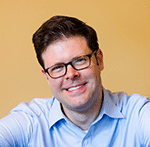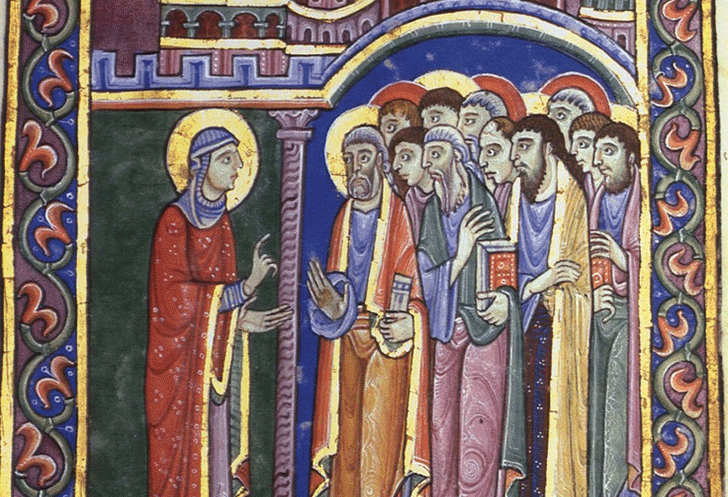Theological Education between the Times: Reflections on the Telos of Theological Education
The articles that form this issue of Spotlight on Theological Education emerged out of the work of Theological Education Between the Times, a project funded by a grant from the Lilly Endowment to the Candler School of Theology. This project seeks to renew and resource conversations on the purposes of theological education in a season of profound change. The empirical origins of this project are the kinds of dramatic shifts that most of us committed to the work of theological education can easily narrate even as the degree to which each of us feels those shifts on a day-to-day basis varies widely with our institutional contexts. The changes are substantial. Some schools are closing, merging, or changing their fundamental missions. Many schools face declining enrollments. New degrees are displacing the MDiv for many students. Student debt is rising. New kinds of institutions are emerging. Distance learning is expanding. And these deep changes only begin the list.
For many institutions, these and other fundamental shifts in theological education raise practical questions. How do we reach our enrollment quotas for next year? Should we invest in infrastructure or new faculty when the future seems uncertain? Or, perhaps more immediately, how do we keep the doors open another day, another week, another year?
In the daily stress of finding ways to answer these urgent questions, we can often settle into a managerial mindset in which the larger question of the purpose of theological education is subordinated or even lost. Practical questions are of course crucial. Changing institutional configurations demand our very best management. But these new shifts make old questions about purpose even more vital. Why are we doing this in the first place? What is all of this for? To what end is theological education oriented?
Rooted in an awareness of clear cracks in previous forms of theological education and attentive to the kinds of larger questions that managing such fissures often obscures, two central commitments have guided the work of the grant and give rise to this collection of essays. First, the project centers on a clear conviction that what is needed in the present moment is a renewed focus on the telos of theological education. If empirical shifts raise urgent practical questions that rightly consume much of our energy, the work of this project is focused on slower, deeper discernment of the meaning of our work. The work of the project, then, is about more than the goal—more even than the mission—of theological education. This project focuses on the end of theological education. This requires thinking theologically about its meanings and purposes. It requires reading the signs of the times. And, as the title of the grant suggests, we think it requires an eschatological cast of mind. For Christians, the present is not only between the times of institutional configurations, but also between the times of the resurrection and the fullness of redemption yet to come.
A second conviction is that no single testimony will be fully truthful or comprehensive to the work of answering these questions. Anything like an adequate understanding will require knowledge from multiple perspectives. The pluralism essential to our discernment requires diversities of race, ethnicity, gender, sexuality, faith, region, discipline, and vocation. It also requires diversity in the kinds of institutions represented. And so this work demands we think within and beyond the limits of the Association of Theological Schools, as generous and expansive as those limits have become. For part of the work before us involves rethinking exactly those boundaries.
These commitments are reflected in the work of the first phase of the project, which we completed last year. The first phase convened five different consultations—involving nearly sixty participants from four different countries—that sought to cultivate public deliberation among diverse groups of people about the telos of theological education. The pluralism on which this work depends was present not only in the diversity of its participants—including twelve from non-ATS institutions—but also the diversity of institutions in which the consultations took place: Saddleback Church in Orange County, CA; Howard University Divinity School in Washington, DC; Candler School of Theology in Atlanta; Esperanza College in Philadelphia; and Mundelein Seminary in suburban Chicago.
The conversations of diverse groups of people in these very different locations resist reduction to a summary or a set of bullet points. They also challenge the easy narratives of decline or progress that so often shape discourse about theological education. For example, a conversation on the campus of Saddleback, an evangelical Christian megachurch affiliated with the Southern Baptist Convention, brought together a Catholic professor of theology at a university in rural Minnesota that is steeped in the Benedictine tradition and a Pentecostal president of a well-established Bible institute in Los Angeles that serves primarily Latino/a communities. The professor described a number of changes that often get read as a kind of decline. The president described the problems that arise from not having enough leaders to respond to the exploding demand for his school’s weekly gatherings. Their exchange reveals just one glimpse of the kind of deep plurality that complicates any flat story we might be tempted to tell about theological education in the United States.
The second phase of the grant, which began recently and stretches into 2019, sustains and deepens the work of the first. It will involve sharing of some of the fruits of the first phase through panels, lectures, and collections of essays like those presented here. It will also try to add to the literature produced by the first phase. Shaped by the wisdom of the first round of consultations, a group of twelve people will meet together over the next three years to write a series of short, smart, accessible books that are grounded in and conscious of particular social locations even as they continue to think about the telos of theological education.
Our conviction that any singular story would flatten out the pluralism that has been a hallmark of the project informs the decision to present a range of contributions in this issue of Spotlight. Each of the authors shared in a consultation in the first phase and offered thoughtful and profound insights in the course of the consultation. Each wrote important pieces before and after the consultation. These essays share some of the ideas that came out of that process. Each one offers distinct insights grounded in the life of some living, breathing community. They are rich individually. They are richer still as a conversation.
The essays are rooted not just in particular communities, but in a particular time. The first public life of these essays was in a panel presented at the annual meeting of the American Academy of Religion in San Antonio in November of 2016, just two weeks after the US presidential election. Many of the essays reflect anxieties, hopes, and commitments that have become even more urgent for those who articulate them in the months since the election. These months have underscored the need to think again about the telos of theological education in a time between the times.
 Antonio Eduardo Alonso is a doctoral candidate in the Graduate Division of Religion at Emory University and a dissertation fellow of the Hispanic Theological Initiative. In the fall, he will begin work at Candler School of Theology as visiting instructor in the practice of theology and culture, and director of Catholic studies. In addition to his academic work, he is a widely published composer of liturgical music. Alonso currently serves as graduate research assistant for the Theological Education Between the Times project.
Antonio Eduardo Alonso is a doctoral candidate in the Graduate Division of Religion at Emory University and a dissertation fellow of the Hispanic Theological Initiative. In the fall, he will begin work at Candler School of Theology as visiting instructor in the practice of theology and culture, and director of Catholic studies. In addition to his academic work, he is a widely published composer of liturgical music. Alonso currently serves as graduate research assistant for the Theological Education Between the Times project.
Header Image: Mary Magdalene announcing the Resurrection to the Apostles, St. Albans Psalter, 12th century

